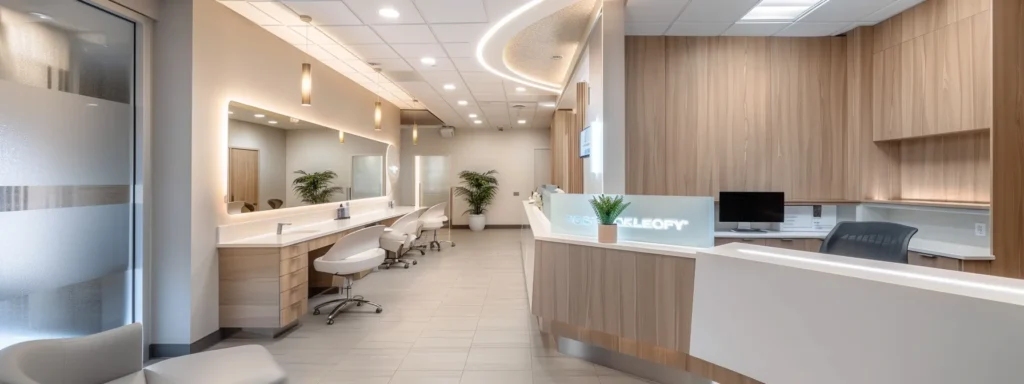Chronic pain affects over 100 million Americans, creating complex challenges that demand sophisticated, compassionate treatment approaches. Long-term pain management requires understanding that chronic conditions involve far more than physical discomfort, encompassing psychological, social, and lifestyle factors that interconnect in profound ways. Joseph Gleed, LCSW, CCTP, brings over 20 years of specialized experience helping veterans and first responders navigate complex trauma-related chronic pain conditions throughout Utah communities.
At Renova Wellness & Consulting, we merge medical expertise with empathetic patient education to forge sustainable pathways to well-being. Our comprehensive approach recognizes that successful pain management requires addressing all dimensions of chronic conditions. Most importantly, we focus on empowering patients to stay ahead of their pain rather than constantly chasing relief.
Understanding Pain’s Complex Nature
Chronic pain demands recognition as a multifaceted condition affecting physiological, psychological, and social dimensions simultaneously. The physiological aspect involves complex nervous system changes that extend far beyond simple tissue damage. Chronic conditions associate with neuroplastic changes that sustain pain even without ongoing physical harm, requiring sophisticated medical interventions.
Psychological impacts create emotional distress alongside physical discomfort, often establishing feedback loops where pain and stress reinforce each other continuously. This pattern appears prominently in conditions like fibromyalgia, where chronic stress exacerbates physical symptoms significantly. Understanding these connections proves essential for comprehensive treatment planning.
Social dimensions affect daily activities, work performance, and interpersonal relationships in ways that compound suffering. Individuals with chronic back pain often find job performance, social interactions, and overall quality of life severely impacted. These disruptions require specific interventions that address functional restoration alongside pain reduction.
Recognition of pain’s multidimensional nature guides treatment approaches that address root causes rather than simply managing symptoms. This comprehensive understanding forms the foundation for successful long-term management strategies.
Comprehensive Pain Assessment and Understanding
Effective chronic pain management begins with grasping extensive impacts beyond physical sensations. Physiological alterations continue well past usual recovery periods, including heightened pain signal sensitivity and altered perception patterns. These changes require medical insight and tailored therapies addressing underlying nervous system adaptations.
Psychological perspectives reveal chronic pain frequently accompanied by emotional burdens including anxiety and depression. These conditions intensify pain experiences through complex neurochemical interactions that amplify suffering. Recognition of psychological interplay necessitates integrated support addressing mental health alongside physical treatment approaches.
Social and professional disruptions lead to isolation and reduced work capacity, creating additional stress that worsens pain cycles. Addressing these implications requires rehabilitation, maintaining daily functionality alongside support managing lifestyle changes. Utah residents particularly benefit from community-based approaches that maintain social connections during treatment processes.
Building Sustainable Relief Strategies
Sustainable pain management incorporates medical treatments, lifestyle modifications, and psychological interventions creating foundations for lasting relief. Medications play important roles but require judicious use due to potential side effects and dependency risks. Strategic medication management focuses on alleviating pain while minimizing long-term reliance through integrated approaches.
Lifestyle changes form sustainable management plan bedrocks through regular exercise and balanced nutrition improving overall body function. Simple adjustments like ergonomic workstations or appropriate footwear make significant differences in daily pain management. These modifications prove especially valuable for Utah’s active outdoor lifestyle communities.
Key lifestyle modifications include:
- Regular low-impact exercise routines tailored to individual limitations
- Anti-inflammatory dietary choices supporting natural pain reduction
- Stress management techniques including meditation and deep breathing
- Sleep hygiene improvements enhancing natural healing processes
- Activity pacing strategies preventing overexertion and flare-ups
Behavioral therapies provide indispensable tools for managing emotional and psychological aspects of enduring pain. Cognitive-behavioral therapy techniques equip patients with coping mechanisms reducing mental fatigue accompanying chronic conditions. These strategies prove particularly effective when combined with physical interventions for comprehensive care.
Developing Personalized Treatment Plans
Effective chronic pain management relies on personalized treatment plans considering unique individual factors. Genetic influences significantly impact pain experiences, medication responses, and healing rates, necessitating tailored approaches to therapy types and dosages. Understanding biological makeup optimizes treatment effectiveness while minimizing adverse reactions.
Personal health history informs management plans through past injuries, surgeries, and chronic medical conditions. This historical knowledge enables careful therapy selection and combination, such as physical rehabilitation programs addressing previous musculoskeletal issues. Comprehensive assessments enhance recovery processes through targeted interventions.
Environmental contexts including workplace ergonomics, home life, and recreational activities influence pain management success. Personalized plans include activity and environment modifications preventing pain exacerbation. Joseph Gleed’s experience with high-stress professionals provides valuable insights into occupational pain management strategies.
Therapeutic exercises and counseling sessions address individual daily challenges and stressors specific to each person’s circumstances. This individualized approach ensures treatment relevance while maximizing engagement and compliance rates.
Non-Pharmacological Treatment Approaches
Non-drug treatments enhance quality of life and functional capabilities through comprehensive approaches. Physical therapy exercises build body resilience while reducing pain’s impact on daily activities. Tailored exercise programs range from gentle stretching to strength-building routines supporting pain-affected regions.
Psychological and behavioral therapies equip individuals with mental coping strategies proving as vital as physical treatments. Cognitive-behavioral methods encourage positive thinking patterns and effective pain management mechanisms alleviating mental burdens. These approaches prove particularly valuable for trauma survivors dealing with chronic pain conditions.
Adaptive technologies and environmental accommodations include:
- Ergonomic furniture and workspace modifications
- Assistive devices reducing physical strain during daily tasks
- Home environment adjustments minimizing painful movements
- Technology solutions supporting pain tracking and management
- Mobility aids enhancing independence and functionality
Regular practice of these techniques improves mobility while decreasing pain episode intensity over time. Combined approaches address both physical limitations and psychological challenges accompanying chronic conditions. Utah’s healthcare communities increasingly recognize these integrated treatment benefits.

Monitoring and Adjusting Treatment Strategies
Proactive pain management requires consistent monitoring and adaptive strategies addressing emerging challenges. Routine evaluation tracks pain patterns and treatment effectiveness, facilitating timely plan adjustments when medications or therapies become less effective. Swift protocol modifications ensure continuous pain control throughout treatment journeys.
Setbacks represent normal parts of chronic pain management rather than treatment failures. Each obstacle provides learning opportunities for treatment plan enhancement, strengthening approaches through experience and adaptation. Support systems encompassing healthcare professionals and peer networks maintain motivation and treatment adherence.
The following monitoring elements ensure optimal treatment outcomes:
- Regular pain level assessments using standardized measurement tools
- Functional capacity evaluations tracking daily activity improvements
- Medication effectiveness and side effect documentation
- Sleep quality and mood monitoring indicating overall well-being
- Goal achievement assessments measuring progress toward personal objectives
Support group encouragement and feedback bolster motivation while maintaining accountability for self-care routines. These networks prove invaluable for long-term management success, especially in Utah communities where peer support enhances individual resilience.
Navigating Healthcare Systems Effectively
Healthcare navigation for chronic pain treatment requires proactive approaches understanding medical resource complexities. Insurance knowledge enables informed treatment decisions while planning financial aspects related to comprehensive care. Understanding coverage benefits and limitations empowers patients making optimal therapy choices.
Healthcare provider network awareness allows chronic pain sufferers choosing suitable professionals for specific needs. Informed patients better align healthcare requirements with available services, ensuring optimal care for individual conditions. Renova Wellness & Consulting provides expert guidance throughout decision-making processes.
Self-advocacy plays crucial roles in achieving optimal outcomes through active communication, questioning, and care-seeking behaviors. Patients advocating effectively tend to receive better treatment results while maintaining stronger healthcare relationships. Professional support navigation ensures comprehensive, continuous care access.
Innovation in Future Pain Management
Chronic pain management advances through personalized medicine, digital health solutions, and novel therapy research. Personalized approaches tailor treatments to individual genetic makeups, improving response rates while reducing trial-and-error processes. Precision treatment design offers enhanced effectiveness for diverse patient populations.
Digital health solutions expand care accessibility through telemedicine platforms and mobile health applications. Remote care access, precise symptom monitoring, and real-time support enable better treatment plan adherence. These innovations prove particularly valuable for Utah’s rural communities accessing specialized care.
Ongoing research continuously uncovers new relief options expanding chronic pain treatment arsenals. Novel therapy discoveries provide hope where traditional methods prove insufficient, offering renewed possibilities for previously treatment-resistant conditions.
Comprehensive Care at Renova Wellness & Consulting
Chronic pain management advancement relies on comprehensive, patient-empowered strategies incorporating established and innovative therapies. Conventional treatments including medications, physical therapy, and interventional procedures remain vital care regimen foundations. These time-proven methods provide reliable pain management approaches supporting overall treatment plans.
Innovative therapies play increasingly significant roles through new pharmaceuticals, emerging therapeutic modalities, and technology-driven interventions. These advances expand pain management possibilities while offering previously unavailable treatment options. Joseph Gleed’s expertise in trauma-informed care brings unique perspectives to chronic pain treatment integration.
Renova Wellness & Consulting dedicates itself to combining diverse therapies into tailored care plans for each patient. Our mission leverages traditional and cutting-edge treatments providing effective support for navigating chronic pain management complexities. This comprehensive approach ensures patients receive optimal care addressing their specific needs and circumstances.
Request your appointment today!
Renova Wellness & consulting
801-317-8522 & info@renovawc.com
2332 W 12600 S #2B
Riverton, UT 84065
Frequently Asked Questions
What are the key elements of a successful long-term pain management plan?
A successful plan integrates medication when necessary, lifestyle adjustments, including exercise and diet, and psychological support to create a balanced and effective approach to chronic pain management.
How often should my pain management plan be re-evaluated?
Your plan should be regularly reviewed and adjusted by healthcare professionals to ensure it adapts to changes in your health status and continues to align with your personal goals for pain management.
Can I manage chronic pain without relying heavily on medications?
Yes, there are many non-pharmacological strategies, such as physical therapy, behavioral therapy, and lifestyle changes, that can significantly improve pain and function without complete reliance on medications.





